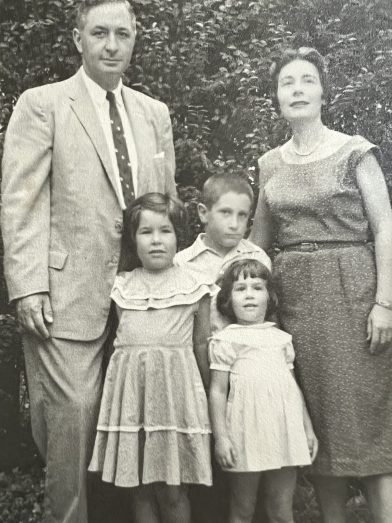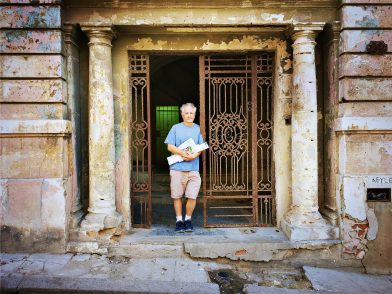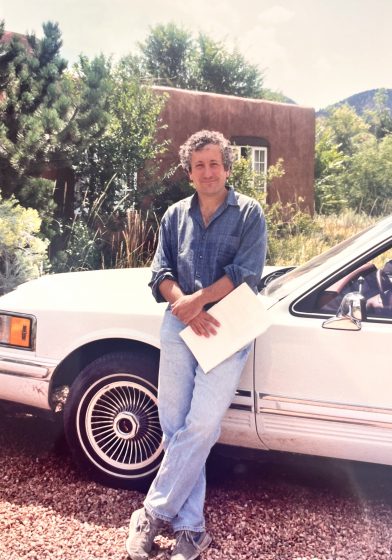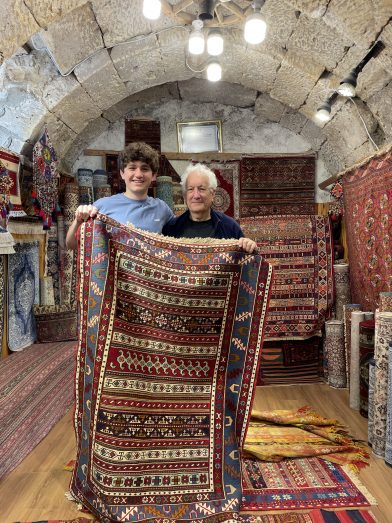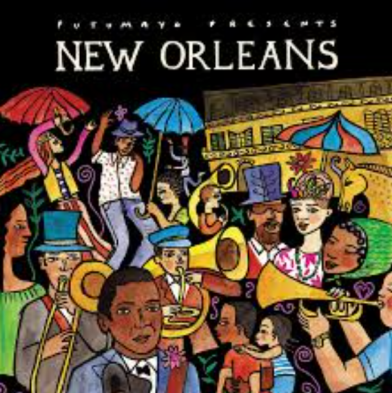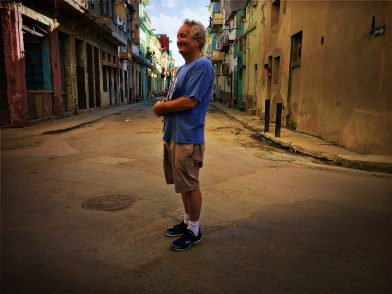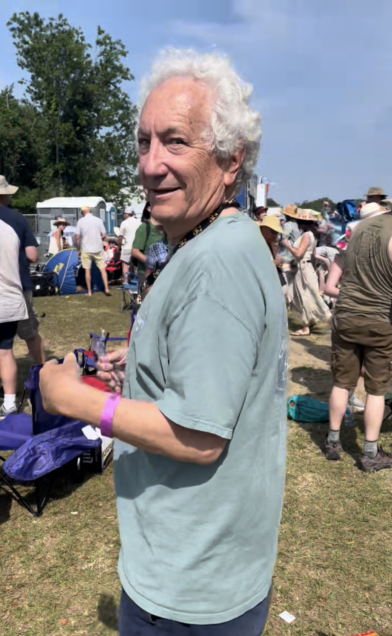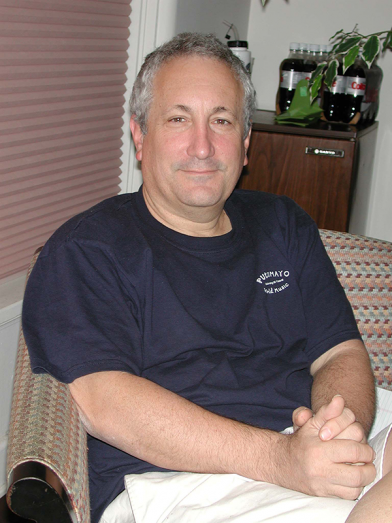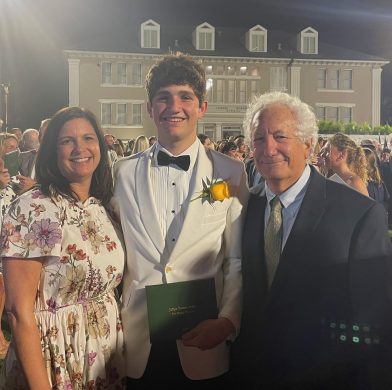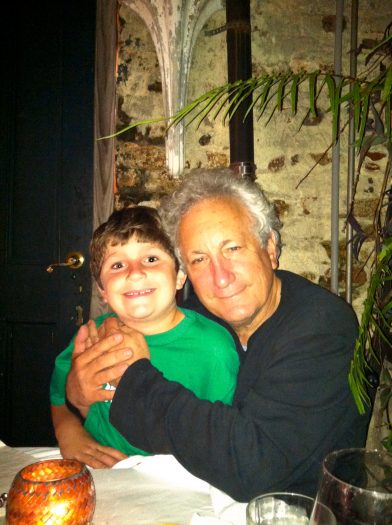Dan Storper certainly had no idea that he would leave such a profound musical legacy.
As a young man growing up in Great Neck, New York, Dan Storper developed a passion for world travel. On one trip in the early 1970s, having graduated college with a Latin American Studies degree, he found himself in a small village in southern Colombia.
“It was carnival time and everyone was dressed up in beautiful costumes,” he recalled in an interview for an OffBeat BackTalk feature in 2022. “And there was this feeling like all was right in the world.”
For Storper, who died Thursday May 22, 2025 at his home in New Orleans with his family by his side—just two days after his 74th birthday and just months after being diagnosed with pancreatic cancer—sharing that feeling with as many people as he could became the driving, defining mission of his life.
It was on that very day in Colombia, he said, that he was inspired to found Putumayo — named after the Putumayo River valley there — through which he sold clothing and handcrafts acquired on his travels, first in a tiny store in New York. The enterprise quickly took off and within just a few years Putumayo grew into a national force, with hundreds of outlets carrying goods he supplied, some designed by him working with local artisans around the world.
Then, sparked by seeing the band Kotoja, led by Nigerian bassist Babá Ben Okulolo, at a 1991 festival in San Francisco’s Golden Gate Park, he launched the Putumayo World Music record label with his long-time friend Michael Kraus. They focused on licensing recordings for compilations showcasing sounds from countries and cultures around the world, in a very short time becoming a near ubiquitous and highly influential presence in museum gift shops, coffee houses, airport stores, boutiques and other non-traditional retailers.
Over the years the label’s more than 400 releases, with instantly recognizable folk-art style covers by painter Nicola Heidl, became cherished by millions of fans eager to explore a globe-encircling wealth of sounds from Cape Verde to Colombia, Cape Town to Helsinki, New Delhi to New Orleans, Storper’s adopted home and headquarters of the label for the last two decades. Among many accolades, the label was given the Elaine Weissman Lifetime Achievement Award by Folk Alliance International in 2021.
There was a second a-ha moment which helped forge his music venture before he started the label.
“He was traveling around the world finding amazing music and when he went back to New York to one of his stores and he heard techno music [being played by the staff] he couldn’t believe it,” says his sister, Barbara Storper, in a tribute she and their other sister Sarah Field, who lives in West Hartford, Connecticut, wrote shortly after his death. “He was like, ‘Wow, I have to change the music here,’ and he started putting in tapes from the music he had found around the world, and that is what really interested him…trying to get this music heard in the U.S. and then around the world. He definitely was a visionary that way.”
He approached Kraus, who had a music background and at the time ran the Catch a Rising Star comedy club in New York, and the two of them partnered to create the company, releasing their first two titles in 1993. Rather than try to fight major labels for space in record stores, they started going to trade shows, approaching various retailers in markets not known for carrying CDs. And the same aesthetic that made the Putumayo stores successful had great appeal.
“His mission was really to celebrate the diversity of the cultures of the world through the various products he sold,” says Jacob Edgar, who has done A&R for Putumayo since 1998, in addition to running his own Cumbancha label, hosting the Music Voyager television series and serving as a lecturer and music curator on National Geographic-led tours. “There was a genuine belief that celebrating diversity was a good thing, that music in particular was a way to break down barriers between people, to bring people together. And Putumayo was relentlessly positive. The motto is, ‘Guaranteed to make you feel good.’ He was basically trying to say, ‘We are welcoming you into this world.’”
Illustrating the spirit, shortly after Storper’s passing, Edgar shared a video of his friend, shot in Havana in 2018, dancing in a frenzy with a group of locals to Cuban music.
“The patented crazy dance,” he says of something he observed many times. “It wasn’t always caught on film, though. It’s like Bigfoot.”
“He really took life by the balls and knew that he had one life to live,” says Barbara, who writes and produces plays and videos about good eating habits for children, in a phone conversation from her home in Santa Fe. “He wanted to make sure that we did as much as we could do to make the world a better place.”
That, she says, was nurtured by his youthful travels and studies, and was fueled by an entrepreneurial spirit that manifested early and aggressively in his life. Among the memories she shared in the piece she wrote was Dan, at five, taking some of their father’s clothes around their Great Neck street in a red wagon, “thinking he could sell them to our neighbors, until one neighbor asked him, ‘Does your father know?’”
Kraus says of the early sales pitches, “The hook was somebody who might have a jewelry shop or gift shop that would say, ‘I’m not into selling music,’ I said, ‘Look, it’s not about selling music. It’s about creating an environment for your store.”
He stayed hands-on with that throughout his life. His son, William, saw that close-up when he accompanied his dad on “store-busting” road trips, on which he’d go check on the retailer carrying the products around the country.
“Starting when I was nine or so he took me on those across the country,” says William, 19, a graduate of New Orleans’ Isidore Newman School who is now studying international relations at IE University in Segovia, Spain. “It’s just incredible, the personal relationships he had with each of the stores. He had notes on each store, he knew all the managers. There wasn’t a store that he sold to where he didn’t know the name of the person doing the buying or the owner. I would go in with him and shop around and he would always buy me something, because if he spent money at the store maybe it would make them buy some more merchandise from him.”
And while William was traveling on a gap year after high school, his dad met him once in Turkey and then on a trip through Mexico and Guatemala.
“It was super cool,” he says. “There’s a huge, famous market in Guatemala where (when he had his handcrafts store) he would buy things to sell. And it was cool for me to be with him when he revisited this huge market.”
One early, dedicated fan was Dr. Michael White, the New Orleans clarinetist and jazz educator.
“I started seeing these CDs everywhere,” he says of the label’s early flourishing. “First of all, the colorful covers were always so attractive. So that caught my eye. And then I started to notice that these recordings were like folk music from around the world. So I bought a number of these.”
Soon enough, some of White’s music was on the label. The impact of that placement quickly became profound.
“I’ve had people tell me, ‘Oh I love your song, “Give It Up,” on that record,’” he says. “And I’d say, ‘On my record, Dancing in the Sky?’ And they’d say, ‘Oh no, it was on Putumayo!’”
New Orleans trumpeter Leroy Jones had similar experiences with his music, which Storper featured on several compilations, including two tracks of Jones in tribute to the music of Danny Barker on the New Orleans Party collection.
“Being an independent artist and not having the distribution that musicians get when they’re on a big record label, it helped me immensely,” he says. “I know for sure that he felt that there was something uniquely special about the music scene here and in the city of New Orleans.”
OffBeat publisher Jan Ramsey admired and connected with Storper’s energy and passion immediately when he started coming regularly to New Orleans in the mid-1990s, before he was even a resident.
“He loved the music, he loved the musicians, he loved the culture and the different cultures he was immersed in,” she says. “And he made it his life’s work to expose people to the music. And that, to me, was profound. I thought it was the most wonderful thing ever, because you don’t find people like that. You find it in some of the older people, like [Arhoolie Records founder] Chris Strachwitz. But you don’t find many people like that anymore.”
A key factor, she says, was his imaginative approach to getting his music out.
“He obviously needed to make money, but he figured out a way to do that too,” she says. “His distribution was so clever. Nobody had done that before, doing the distribution in retail stores, almost like an impulse item. I just thought it was brilliant. And it worked. By God, he managed to survive all that’s happened in the music business over the past 30 years. He managed to survive, and he did it well. Those kinds of people don’t come along very often.”
Storper’s connection to the city deepened after getting together with Amy Sevante, who had grown up in Mid-City and Broadmoor, whom he met when she had started working as manager at one of his New York stores and he stopped in to pick up a package. They married in 2002 in a ceremony with music from Kermit Ruffins, who had been featured in a Putumayo album of his recordings. After some years of “living on Jet Blue” commuting between Louisiana and New York, he finally settled full time here in the early 2010s. (Dan and Amy separated a few years ago, but remained close.)
Storper, Ramsey notes, did much to support the community as well. Just several months ago, she was surprised to get a generous check from his family foundation to help keep OffBeat afloat. It was the product of a deep bond he formed with Ramsey and the magazine, a shared commitment to the music and culture of the city. Ramsey got to express her appreciation to him in a visit not long before he died.
“When I talked with him I said, ‘Look, Dan, you will never be forgotten. You have a legacy. You’ve accomplished things that other people just wish they could do,’” she says. “He was such a nice guy, a sweetheart of a guy. He’s going to be missed.”
Filmmaking couple Michael Murphy and Cilista Eberle, who made the 2005 New Orleans music documentary Make It Funky! and 2019’s Up From the Streets – New Orleans: The City of Music, first met Storper three decades ago when he was just starting the record label. They were producing the House of Blues’ television presentations and had been filming the New Orleans Jazz & Heritage Festival for some years already, and Storper had some projects in the works that he wanted to discuss. It was the start of a close, enduring friendship.
“What came out loud and clear was that he had a real passion for excellence,” Murphy says. “Whether it was the documentary he was trying to do or whether it was the selection of songs he was listening to for his next album, there was always a focus on the passion for excellence. He was hands-on, very opinionated. But that really reflected in the quality of the music. Dan really wanted people to listen to the music from other cultures around the world. That will be a lasting legacy.”
Murphy cited Bonnie Raitt, Carlos Santana and Jimmy Buffett among “a-list” fans of the releases. Buffett even said in an interview once that he listened to more Putumayo albums than anything else.
“To this day I’m always getting new releases from his label and I share his music with some really close friends and they write me and say, ‘My God! This music that you shared with us, it’s so incredible!’” Murphy says. “Some of them didn’t even know the label. But now they do.”
While many of the compilations included tracks by little-known artists, these are not ethnographic explorations. Rather, Edgar says, they are by design meant to have populist appeal.
“I’m as guilty of this as anybody, but we’re snobs,” Edgar says, on a Zoom call from a boat off Scotland, where he is on a National Geographic tour. “We want to be picking out stuff that nobody knows about. And Dan took the totally opposite approach. He was like, ‘No, I want to welcome people into the this tent and not make it seem like you have to be an expert to listen to African music. You can enter this world through Putumayo and hopefully in doing so you will expand your horizons and dig further. We had no problem being what we would call the World Music 101 label. We were proud of the accessibility, while maintaining the authenticity of what we were putting out.”
Edgar adds that it was crucial to Putumayo not to take the standard view of so-called world music as being for people in the U.S. and Europe who wanted to hear music from other places, but rather to have a fully global roster that included North American and European artists. The result was that he has regularly heard from people in all parts of the world that they have embraced the label’s offerings.
And even many who are deeply knowledgeable about these music appreciate the groundbreaking work of Storper and Putumayo. Dean Ellis, host of the WWOZ Brazilian-centric show “Tudo Bem” and the global-conscious “The Dean’s List,” is one.
“There are pioneers of all kinds, in all fields: science, art, philosophy, history, film, music,” he wrote in an email. “They appear to operate on the cutting edge of discovery, that is, they arrive before anyone else does. But it is more than that; one must have the keen instincts to sniff out what is right beneath our noses, hear what is playing in faded registers, unearth what is hidden in shallow crevices. And make us aware, so much so we wonder how we missed such treasures. Dan Storper was such a pioneer, not only as the founder of Putumayo, a maven amongst mavens (which this garden variety radio nerd is forever grateful to), but as a singular voice for his mission to open up channels of listening for the rest of us that were buried or somehow neglected. A world of world music brought to the world. Without such expertise we all would have been poorer listeners, and his loss that we now grieve must accompany our gratitude for his lifetime of work. Thank you, Mr. Storper, for your knowledge and efforts and infectious spirit, which all of us are now responsible to continue that legacy you left us.”
For Storper, there were also pragmatic concerns in some of the selections.
“One of the things about the Putumayo aesthetic is you’ve got to be able to listen to a song scores of times and not get tired of it,” he noted in the OffBeat interview, as discussing choices made for a 2022 album that served as companion to Linda Ronstadt’s book and documentary drawn on her family’s heritage in the Sonoran Desert of Mexico and Arizona. “Because we sell to so many museum shops, bookstores, gift stores, places like that, they have to be able to play it, and the staff has to be able to listen to it without getting sick of it. So that’s a qualification that a lot of people don’t necessarily think about.”
Edgar says that was typical of Storper, who stuck to his vision even if it cost him.
“He always stayed true to his principles, his beliefs, his passions,” he says. “He passed up many opportunities that would have made Putumayo more mainstream in an effort to preserve its integrity. I can’t tell you how many times over the years we were offered corporate sponsorships, collaborations with companies he didn’t want to do business with. When we had to manufacture books, he wouldn’t do it in China, for example. It caused all these headaches, made things much more expensive. But it was a reflection of who he was as a person.”
Despite, or perhaps because of that, Putumayo became an almost ubiquitous brand, a name that came to represent a certain sensibility in pop culture shorthand. Even Seinfeld had a go at it, with a 1999 episode involving Elaine launching a personal campaign against the clothing store.
Karen Rappaport McHugh worked as a marketing and strategic consultant for Putumayo from 2006 to 2008, focusing on the Putumayo Kids Music division. The Kids division released dozens of titles, including some with New Orleans themes, many winning Parent’s Choice awards.
“He was at the forefront of kids’ music and that became a really big, important area for him,” she says. “His whole approach with marketing was about alternative places, so it was brilliant and people were finding these. Putumayo Kids was a very vibrant part of that business for a long time. And he was always very community-minded.”
One of the albums, New Orleans Playground, featured tracks by the Meters, Kermit Ruffins, Dr. John, Fats Domino, Charmaine Neville among others. It also was part of the ongoing Putumayo effort to support New Orleans after the 2005 flood, with hundreds of thousands of dollars given to the rebuilding and care efforts.
The community spirit was key to the company as well.
“Because of Dan and his ability to source such unique and dynamic individuals to work for him much like how he discovered music, I met like-minded people who have become lifelong friends,” writes Mona Kayhan, who had studied ethnomusicology and lived for a time in Mali before being offered a job on staff at Putumayo Kids. “Because of Dan trusting a young kid like me to be a great manager, I got promoted and managed my first team, realizing I had a passion for building teams. Because of Dan, the artists I saw in concert in the deserts of Mali, ended up being artists I got to help get out into the world.”
That’s echoed by David Hazan, former Putumayo World Music senior vice president of marketing, who first started working with Storper on collections featuring Cajun and zydeco from Southwestern Louisiana, for which they partnered with Louisiana Tourism.
“Dan’s legendary end-of-day listening sessions, where he invited the entire company to weigh in on every song he was considering for upcoming compilations, made us all feel we had a stake in every release,” he wrote in an email. “Dan was a true visionary with a big heart. Relentless, indefatigable, and eternally optimistic, he never got old, and never even seemed to slow down. In his final email to me 10 days ago, he assured me he was ‘still working on Putumayo albums.’ There will never be anyone remotely like Dan Storper. He touched so many and changed how the world listens. He will always be remembered and deeply missed by so many of us.”
A reluctant adapter to modernity, Storper in recent years had helped oversee the transition of Putumayo music into the streaming and download age, making nearly the entire catalog available on the major platforms. Edgar notes that they are no longer pressing new CDs at all.
“There was a New York Times article that said we were probably the last label to enter the digital age,” Storper said in the OffBeat interview. “Obviously I’m an older guy who’s more familiar and comfortable with physical albums.”
Putumayo had also developed a children’s book series with a multicultural reach, “non-traditional stories,” he said. And he had been at work on several book projects of his own, drawing on his passions for travel and the cultural excitement and political activism of the 1960s, including extensive research into the impact of President John F. Kennedy and questions still lingering over his assassination.
“It’s about the search for peace and justice and political struggles of the ‘60s,” Storper said of the latter. “As I travel I do interviews with people who were active in the ‘60s.”
Sister Barbara says that the family is readying the book, titled The Hope and Myth of America, for publication. And of course the Putumayo music empire will continue, with Edgar leading the team shaping the next phases and William taking an active, ongoing role as well.
And all these years later, wherever he went, he retained that feeling he had in the village in Colombia right to the end. He was able to make it to Jazz Fest just a few weeks ago, accompanied by Amy and William, where he took in some of the acts showcased in this year’s Cultural Exchange Pavilion spotlighting the music of Mexico. It was a perfect cap to the ongoing sense of discovery and of sharing that he had around the world and at home.
Three years ago he recounted a conversation he’d just had with Taj Mahal.
“I remember sitting there and thinking about the people that had come through New Orleans who I’d seen in different contexts,” he said.
He mentioned a group from Mali that had just played, and a small festival he’d helped put on featuring acts from Haiti and elsewhere in the region, and noted that there are many excellent Latin groups based in New Orleans.
In the interview three years ago he cited a small festival he put together in New Orleans featuring acts from Haiti and elsewhere in the region.
“I’ve always loved the idea of being able in a place like New Orleans to see international music,” he said.
William says that will be honored in New Orleans this summer, with a celebration of life reflecting his passions and impact in the works, a manifestation of his profound legacy.
Of course, it’s a legacy that exists not just in the music and crafts he presented, but deeply in those close to him, most evident in his son, who is looking at a career in foreign service or with an NGO.
“But also I’ve always had an entrepreneurial spirit,” William notes. “And that’s directly from him.”
Clearly, his father was proud of that legacy in particular.
“The thing that makes me the most emotional is people saying how proud of me he was,” he says, his voice cracking a little. “It’s the only thing in the world that I would ever ask for and it’s just the greatest feeling to know that.”
Storper’s sister Barbara sent OffBeat this message: I was able to videotape Dan at his home on May 10, and I just transcribed it:
“I hope you’ll remember me, [and starts singing] “I will remember you!”, and hopefully my legacy is positive – music, culture, travel, bringing light and
love and uplifting music to help people feel better…cheaper than therapy sessions…or drugs. And William [his 19-year-old son]…he’s the greatest!”
“And I hope my book [that he’s been researching and writing over the last 10 years about the politics, history, and culture of the 60’s] gets out there and read and that people understand what really has happened over the last 75 to 100 years—how democracy got stolen and destroyed, and that changes can be made to make this world and leadership more accountable and responsible to the people, so we can have a more valid and viable democracy.”
“I feel so fortunate, so blessed to have had William [his son] in my life. He’s added such a dimension, and thank Amy, and William not just an incredible support these last weeks and months, but having him in my life has made me a happier, more well-rounded, and fulfilled individual, I’m so thankful for his presence in my life. Love you William!”

